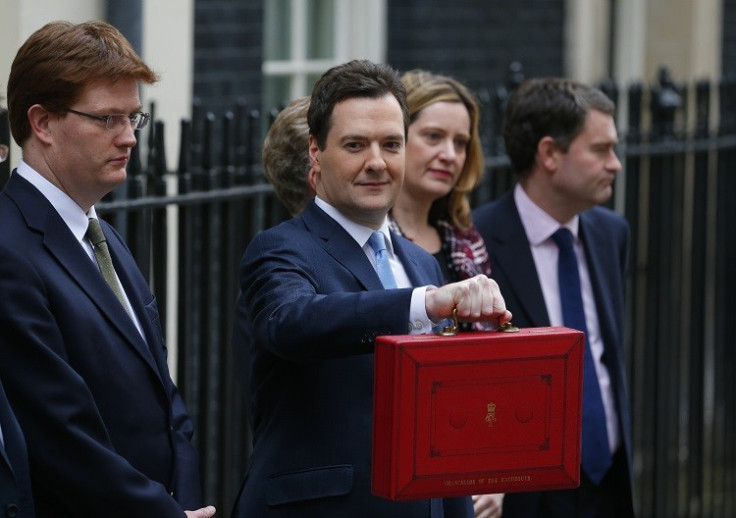UK Public Debt Pile Adds £81.5bn as July Sees Surprise Deficit

Britain's public debt pile soared by another £81.5bn between April and July, even as the economy showed signs of a march to recovery.
According to the Office for National Statistics, public sector net debt, excluding the impact of government bailouts for banks during the financial crisis, hit £1.193tn by the end of July - or 74.5% of GDP.
Chancellor George Osborne has said public sector net debt as a portion of GDP will rise until hitting a peak of 85.6% in 2016/17, two years later than his initial target to have it falling by the end of the current parliament.
The ONS data shows that in the four months the UK government borrowed £17.5bn more than it did across the same period a year before.
Government investment rose slightly during the period. Public sector net investment, excluding the impact of the Royal Mail pension plan transfer to the government, lifted by £500m to £5.6bn.
Excluding the impact of coupon payments made to the Treasury by the Bank of England on gilts purchased through its £375bn quantitative easing programme, there was a £31.2bn deficit in the public sector current budget in the four months to July - a £1.2bn increase on the year.
"While tax receipts have risen, the official statistics show that government has had limited success in curtailing spending," said Daniel Solomon, economist at the Centre for Economics and Business Research (CEBR).
"This can't go on indefinitely; the government will have to get a grip on spending in the next parliament."
In the monthly picture, public sector net borrowing was £1.3bn after an £800m surplus the year before. July is historically a good month for public finances because of buoyed tax receipts, so this was a surprise monthly deficit.
"Another month of disappointing figures raises very serious concerns that borrowing continues to be way off track," said Chris Leslie MP, Labour's Shadow Financial Secretary to the Treasury.
Economy picking up
Growth in the struggling UK economy picked up to 0.6% in the second quarter, after 0.3% expansion in the opening three months.
The economy was buoyed by a service sector which was building strength. Service firms account for around three quarters of GDP.
Rising output is good news for Chancellor Osborne, who was forced to cut public spending more deeply than planned after his austerity programme was upset by the eurozone crisis and a global economic slowdown, which both weigh heavily on the UK and dragged it into another recession.
In his latest round of cuts, £11.5bn is being stripped away from Whitehall department budgets. Some of the biggest cuts in the past have fallen on the government's significant welfare bill as well as local authority budgets.
Osborne is trying to erase the structural deficit in public finances, but critics argue his austerity programme is too strict and is counter-productive because it is sapping money out of the economy at a time when it most needs spending.
© Copyright IBTimes 2025. All rights reserved.






















